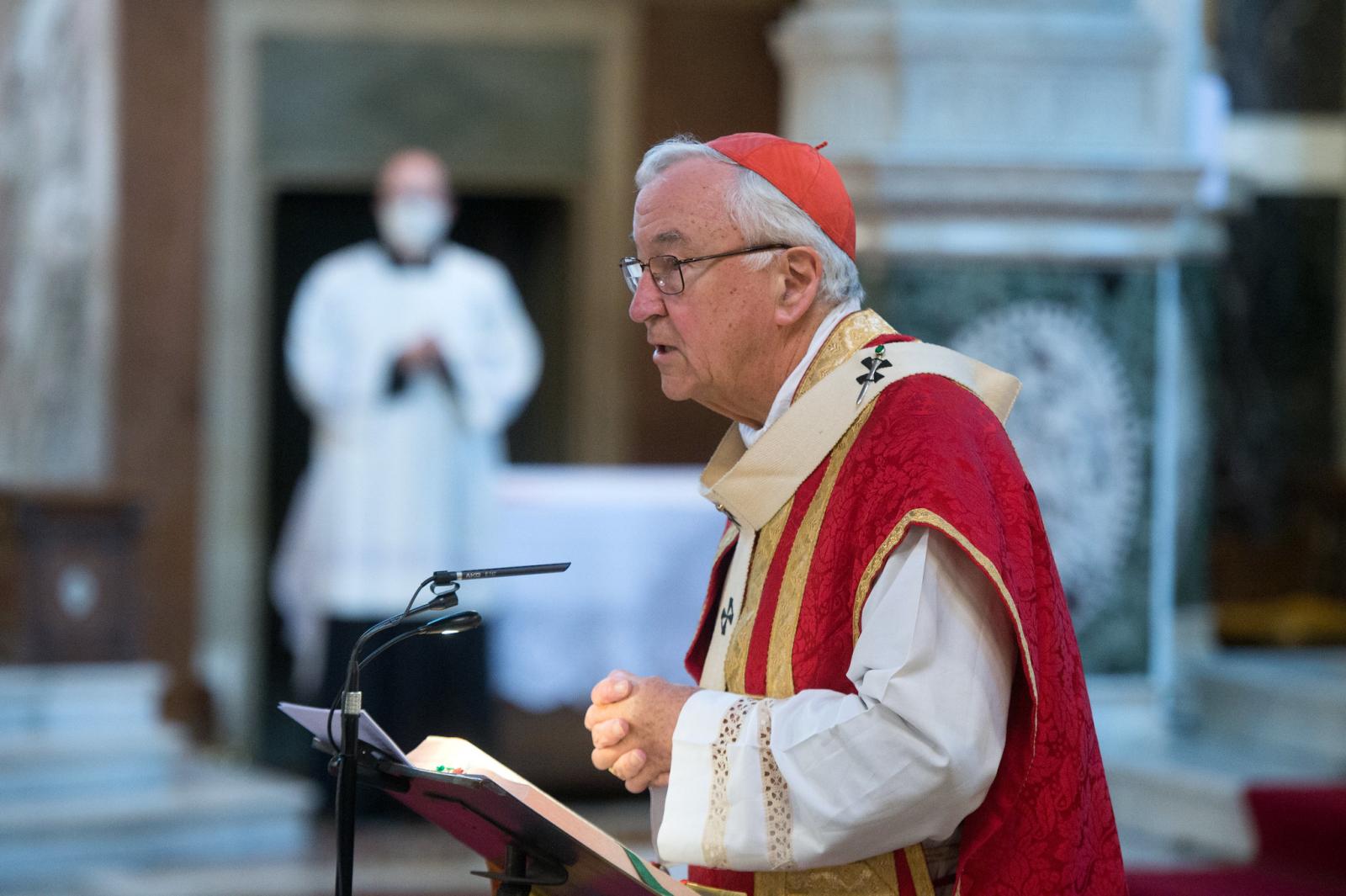Given at the Red Mass at Westminster Cathedral on Thursday 1st October 2020
In a famous saying, St Augustine of Hippo remarked that a society without justice is no better than a gang of thieves. Today, at this Mass, we pray for all who are involved, through the legal system in this country, in the administration and upholding of justice and law. Immediately, I thank you all, not only for your presence here this morning and for bringing this cause to prayer, even in these strange circumstances, but also for your professional endeavours in the cause of good order and justice in our land.
One of the more challenging themes of the teachings of Jesus and of its roots in the Jewish faith, is that of the kingdom of God, that social order as envisaged in God’s purpose for the created world. In faith, this is what we strive for and, in hope, believe will be fulfilled in the fullness of time.
The emerging of this kingdom is, we believe, the work of the Holy Spirit.
It is the Spirit which is spoken of in the Book of Genesis as first hovering over the waters bringing order - a cosmos - out of chaos.
It is the same Spirit who is poured out from the side of Jesus in order to bring about a forgiveness and a new creation.
It is this same Spirit of whom we have heard in the Scripture readings this morning. We pray for the gift of the Holy Spirit to guide our hearts and actions that in our own way we too may help to bring about this kingdom of God.
Glancing at the unfolding of this dimension of faith, let me point to some of the features of this realm or kingdom of God.
In this order, the praise and worship of God is central. It is a basic duty and a source of stability and refreshment. The act of raising mind and heart to God serves to give rise to an ordered life, one marked by compassion and forgiveness and a peace founded on justice. As Pope St John Paul was fond of saying, a society which forgets God moves easily to forgetting the dignity of every person.
The realm of God is, then, rooted in an acknowledgement of the Creator. The inherent dignity of every person is rooted not in rights graciously bestowed by the power of the State, but in the action of the Creator, who fashions human life in his own ‘image and likeness’. This same acknowledgment of the Creator is the true foundation of the movements to protect the created world in all its beauty, diversity and vulnerability.
An acknowledgment of the Creator also reminds us that Divine judgement is the judgement that must fashion our behaviour. This is the ultimate and only fully reliable judgement. All other forms of judgement are marked by our human frailty. They are, of course, our best efforts, and strive to reflect, no doubt, the judgement of him who alone knows all and sees all and who acts always with compassion as well as justice.
This acknowledgment of the Creator also instils in us what should be an unshakeable commitment to our common good, a good from which no one is excluded since we are bound together, belong together, as children of one heavenly Father.
These convictions serve as the deeper foundations of our efforts to create a social order characterised by justice, by solidarity and by profound respect, one for another.
The Judeo-Christian tradition also emphasises that the law of this kingdom of God is written into the heart of every person and can be found there by all who search for it. The Law, then, is not an extrinsic imposition, but an elaborating of what is most profoundly present in the human heart. This conviction gives rise not only to the tradition of natural law thinking but also to a stance to be taken, one to another. It was well expressed to me, once, by a defence barrister, who said, with great conviction, that in all his career he had never met a person who was evil to the core. There is a remnant of good in even the most hardened of criminals, he insisted.
And one last observation, and maybe the most challenging. Jesus is unequivocal. He says that the mysteries of the kingdom will be revealed to those who see themselves as like to ‘mere children’, the humble of heart. He also says that we will imbibe that humility from him alone, for he is ‘gentle and humble of heart’. In him we will ‘find rest for our souls’ (Mt 11.25ff). Arrogance distances us from the kingdom for which we strive. Certainly, the saint whose feast day we hold today, St Thérèse of Lisieux, can show us that pathway.
We come together today observing the restrictions asked of us in order to protect each other from this damaging virus. I often ponder if the experiences of the last seven months are teaching us some of the ways of the kingdom of God: a reluctant recognition of our vulnerability; an acceptance that we are all in the same boat no matter our status; a readiness to contribute to the support of the needy and the isolated; a recognition of the importance and dignity of workers whose efforts are often just taken for granted; a conformity with new patterns that are uncomfortable and costly, requiring a self-discipline and self-sacrifice which only a true caring for others can motivate. Maybe we are learning to be less self-sufficient, less self-centred than usual, and moving a step closer to the values of this elusive kingdom of God.
May God bless you this day and fill you with the Divine Wisdom, the Holy Spirit, that your work is more profoundly a service offered in his name.
Photo: Mazur/CBCEW.org.uk
